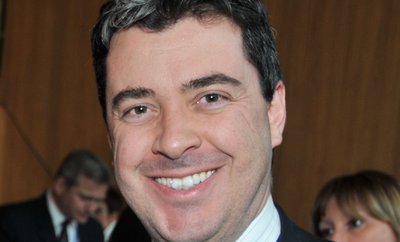22 May 2015
MILE Alumni Profiles: Ricardo Guilherme
"The extremely demanding schedule of the MILE programme… made us stronger for the challenges that would lie ahead."
Ricardo Guilherme graduated from the MILE programme ten years ago. After a stint in Geneva he returned to Bern, taking up a legal position at the Universal Postal Union. The native of Brazil says MILE was invaluable to him in building up a professional network and progressing in his career.
You are currently working at the Universal Postal Union. In what capacity?
I am Director of Legal Affairs and Legal Adviser for the Universal Postal Union, the world’s second-oldest intergovernmental organisation and a specialised agency of the United Nations located in Bern (mainly responsible for the regulation of international postal services around the world) and with an approximate headcount of 250 staff members. The Legal Affairs Directorate is a small but highly dynamic and hardworking team, currently composed of three lawyers (myself included) and one administrative assistant.
What were your career moves after completing MILE 5 in 2005? Following my graduation from the World Trade Institute in 2005, I worked as Associate Trade Researcher for the Centre for Socio-Economic Development (CSEND), a small Geneva-based non-governmental organisation, where I dealt with project-driven research on international trade and development, as well as network-building activities with other institutions. While working for CSEND, I also had the opportunity to co-author and publish research papers and peer-reviewed articles on international trade issues, perform advocacy tasks on topics linked to international trade and development, undergo joint assignments with other organisations on institutional development and interministerial coordination, and assist in simulation activities, capacity-building and technical cooperation for developing countries. Shortly afterwards, I was recruited by a private law firm in São Paulo specialised in international arbitration issues; however, in the meantime (mid-2006) I had received an interesting offer from the UPU, which I took instead.
How did the MILE programme prepare you for where you are now?
The MILE programme has opened several doors in my career, particularly in respect to achieving a unique balance for a lawyer like me between the practice of international law and a relatively rare yet extremely useful knowledge of economics. Furthermore, the quality of the MILE programme’s teaching staff and its alumni has helped me further develop an academic and professional network (particularly outside my home country, Brazil) which has been invaluable in looking for new career opportunities and exchanging best practices and experiences. How do you view the programme in hindsight? The extremely demanding schedule of the MILE programme (at least back in 2004/2005), with its full-time classes and weekly assignments, definitely did not make our lives any easier as students in Switzerland! Nevertheless, I am of the opinion that such gruelling routine only made us stronger for the challenges that would lie ahead - in fact, I sincerely consider the MILE programme one of the best, if not the best, Master’s-level courses in the field of international trade law and economics. Why? Precisely because it dared to merge legal and economic disciplines in a way that few other academic institutions had tried before, while making use of an extremely competent and hands-on teaching staff. Perhaps this is what has led its alumni to be so exceptional, since one’s own background (be it law, economics or any other) is exposed to a distinct set of “trials” as well as a friendly “race to the top” approach vis-à-vis other fellow students. Were there criticisms back then? Surely, especially in terms of a still incipient assistance to students when it came to the job search and further academic possibilities (bearing in mind the relatively small and mainly eurocentric universe of opportunities in the field of international trade law). I may also mention the dearth of interactions with Southern institutions (or others situated outside the US-Europe axis) or with the local Swiss academic world as such. In a way, we felt as if we were really “outsiders”, never being in touch with the Swiss student community despite the formal connections between the WTI and its “mother” universities. In conclusion, I strongly recommend the MILE programme for anyone seriously interested in delving into the world of international trade, because in a nutshell, the pros definitely outweigh the cons!


